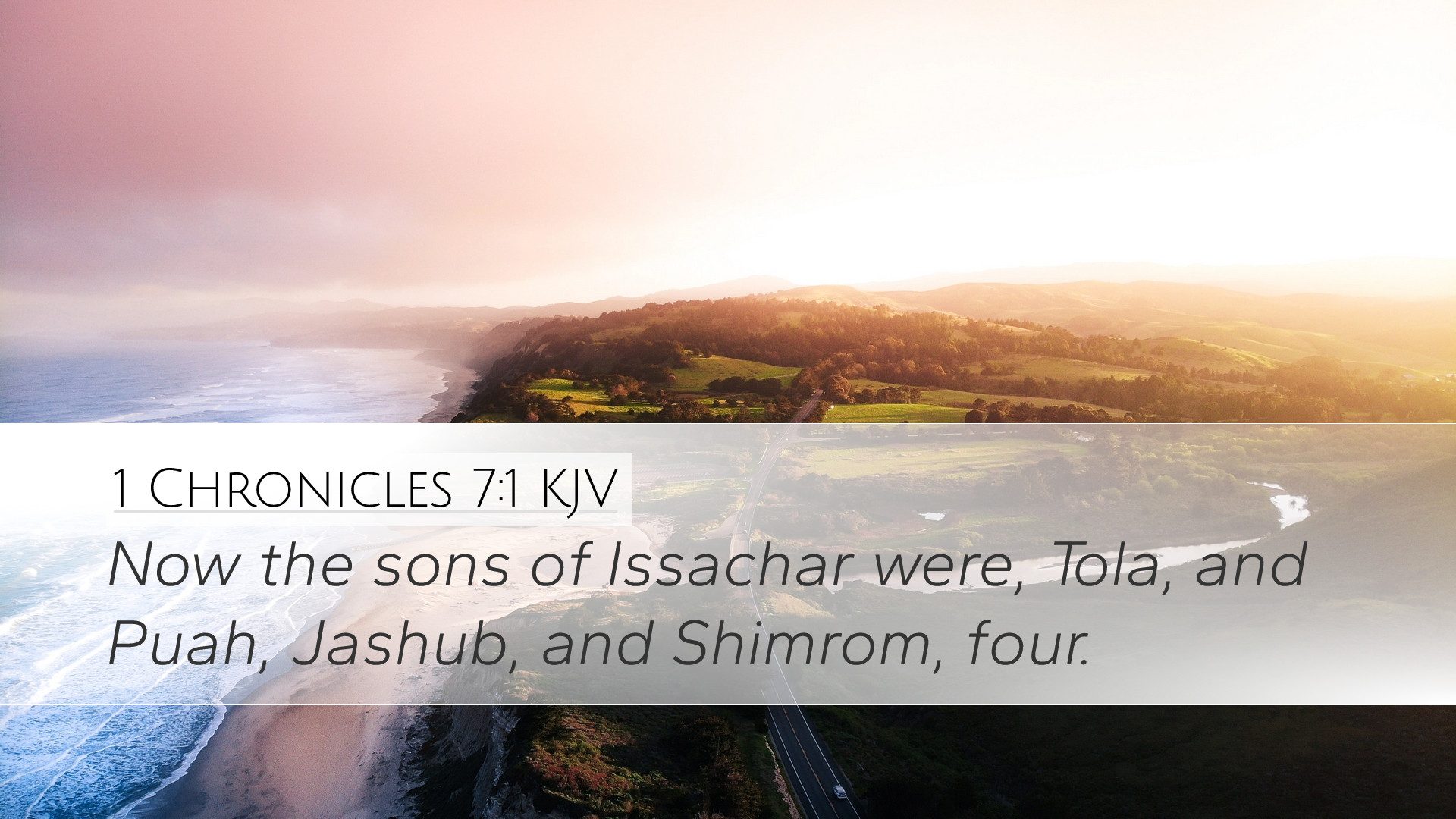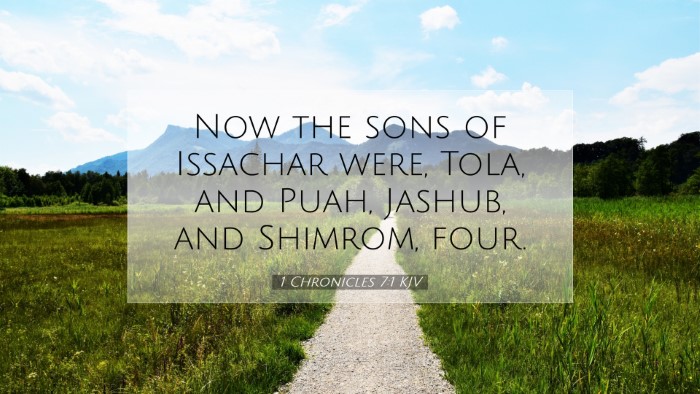Commentary on 1 Chronicles 7:1
Scripture Reference: 1 Chronicles 7:1 - "Now the sons of Issachar were, Tola, and Puah, Jashub, and Shimrom, four." (KJV)
Introduction
The genealogies presented in 1 Chronicles serve to establish the history and significance of the tribes of Israel. In this context, 1 Chronicles 7:1 introduces the tribe of Issachar, detailing its notable figures and lineage. The significance of these genealogical records is multifaceted, offering insights into the identity, heritage, and God's covenantal faithfulness to His people.
The Sons of Issachar
The verse succinctly lists the sons of Issachar: Tola, Puah, Jashub, and Shimrom. Each name carries weight and meaning within the broader narrative of Israel's history.
Tola
Matthew Henry: Tola is recognized as a significant figure who later becomes a judge of Israel (Judges 10:1). His name, meaning "worm," might imply humility or a lowly beginning, yet he rises to a position of leadership. This demonstrates God's ability to elevate individuals for His purposes, regardless of their initial circumstances.
Puah
Albert Barnes: Puah is less known in the biblical narrative but can represent the unseen servants of God in the background. His presence in this genealogy suggests that God honors all of His people, regardless of their public visibility or acclaim. The name itself means "splendid" or "brilliant," perhaps symbolizing the excellence of service in obscurity.
Jashub
Adam Clarke: Jashub means "he will return," which can imply restoration or a turning back to God. This might symbolize the hope of Israel's restoration and returning to the covenant with God. Throughout Israel's history, the theme of returning to God recurs, reminding both the ancient Israelites and modern readers of the importance of repentance and renewal in their spiritual walk.
Shimrom
Matthew Henry: Shimrom is mentioned with little elaboration but symbolizes the continuity of the lineage. His name suggests "a song" or "a praising," which serves as a reminder of the worship and praise that should characterize the God's people. It emphasizes the importance of worship in the life of every believer and how integral it is to the identity of Israel.
Theological Reflections
The genealogy in 1 Chronicles not only serves historical purposes but also theological ones. Each name and lineage is steeped in God's promise and faithfulness to Israel.
- God's Covenant: The lineage signifies God's covenant with Jacob, who was later named Israel. This covenant encompasses not just the direct descendants but also the spiritual legacy passed down through generations.
- The Importance of Legacy: The mention of these names stresses the importance of legacy in faith. Past generations' experiences become a roadmap for future generations, signifying the continuity of faith across time.
- Inclusivity of the Tribe: These sons demonstrate the diversity within God's people. Each personality, role, and legacy contributes uniquely to the broader narrative of redemption.
Conclusion
1 Chronicles 7:1 serves as a reminder of God's meticulous providence in human history. The inclusion of seemingly minor figures in the ancestral line of Israel underscores the importance of every individual in God's redemptive plan. Each name holds potential for teaching about humility, service, restoration, and the ongoing worship of God.
In summary, this verse invites pastors, students, theologians, and biblical scholars to reflect not only on the historical significance of these names but also on their contemporary applications in the life of faith today. It urges a recognition of God’s sovereignty in shaping human history and the call for believers to embrace their roles in the tapestry of faith.


